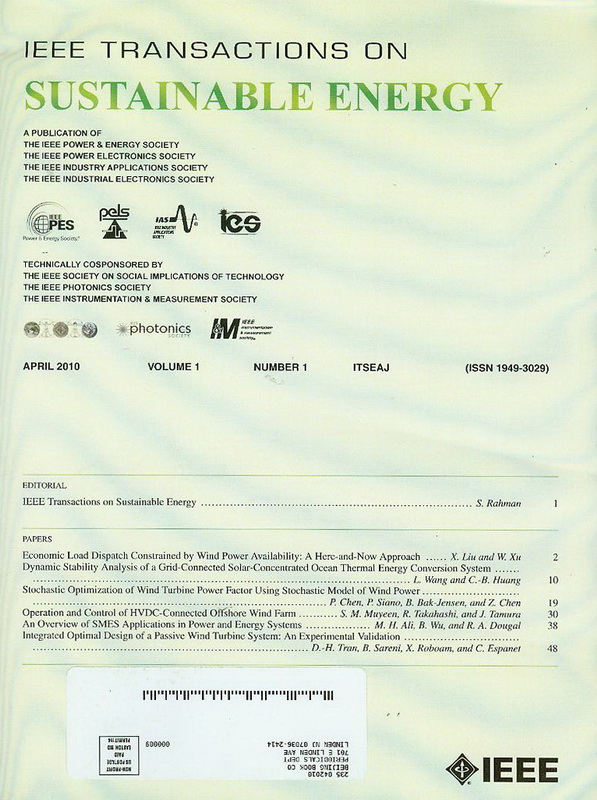A Novel Current Reference Transformation-Based Positive and Negative Sequence Rotor Current Control Method of DFIGs
IF 10
1区 工程技术
Q1 ENERGY & FUELS
引用次数: 0
Abstract
The existing rotor current control methods, despite achieving simultaneous control on the positive and negative sequence rotor currents for the doubly-fed induction generator (DFIG)-based wind turbine, are still facing challenges. Specifically, some works introduce the sequence current decomposition into the classical control structure, which can deteriorate the dynamic performance. While others with high-order regulator embedded into the classical control structure can increase the risk of instability. To this end, this paper proposes a novel current reference transformation-based positive and negative sequence rotor current control method. Firstly, the negative sequence response of the DFIG under the classical single dq-PI rotor current control method is studied, pointing out its satisfactory dynamic performance but poor steady-state performance. Based on which, a transformation formula for the negative sequence rotor current reference is analytically derived to compensate for the steady-state performance. The corresponding analysis indicates that negative sequence rotor current static errors from parameter deviations can be well limited. Comparative simulations illustrated an improved dynamic performance and stability of the DFIG rotor current control with the proposed method. The experimental test of a prototype DFIG system has also been conducted to verify the feasibility of the proposed method in practical implementation.基于电流基准变换的双馈变流器正序和负序转子电流控制新方法
现有的转子电流控制方法虽然能够同时控制双馈感应发电机(DFIG)风力发电机组的正序和负序转子电流,但仍然面临着挑战。具体来说,有些作品在经典控制结构中引入了序列电流分解,这会降低系统的动态性能。而另一些在经典控制结构中嵌入高阶调节器会增加不稳定的风险。为此,本文提出了一种新的基于电流参考变换的正负序转子电流控制方法。首先,研究了经典单dq-PI转子电流控制方法下DFIG的负序响应,指出其动态性能较好,但稳态性能较差。在此基础上,解析导出了补偿稳态性能的负序转子参考电流变换公式。分析表明,由参数偏差引起的负序转子电流静态误差可以得到很好的限制。仿真结果表明,该方法改善了DFIG转子电流控制的动态性能和稳定性。并对样机系统进行了实验测试,验证了该方法在实际应用中的可行性。
本文章由计算机程序翻译,如有差异,请以英文原文为准。
求助全文
约1分钟内获得全文
求助全文
来源期刊

IEEE Transactions on Sustainable Energy
ENERGY & FUELS-ENGINEERING, ELECTRICAL & ELECTRONIC
CiteScore
21.40
自引率
5.70%
发文量
215
审稿时长
5 months
期刊介绍:
The IEEE Transactions on Sustainable Energy serves as a pivotal platform for sharing groundbreaking research findings on sustainable energy systems, with a focus on their seamless integration into power transmission and/or distribution grids. The journal showcases original research spanning the design, implementation, grid-integration, and control of sustainable energy technologies and systems. Additionally, the Transactions warmly welcomes manuscripts addressing the design, implementation, and evaluation of power systems influenced by sustainable energy systems and devices.
 求助内容:
求助内容: 应助结果提醒方式:
应助结果提醒方式:


